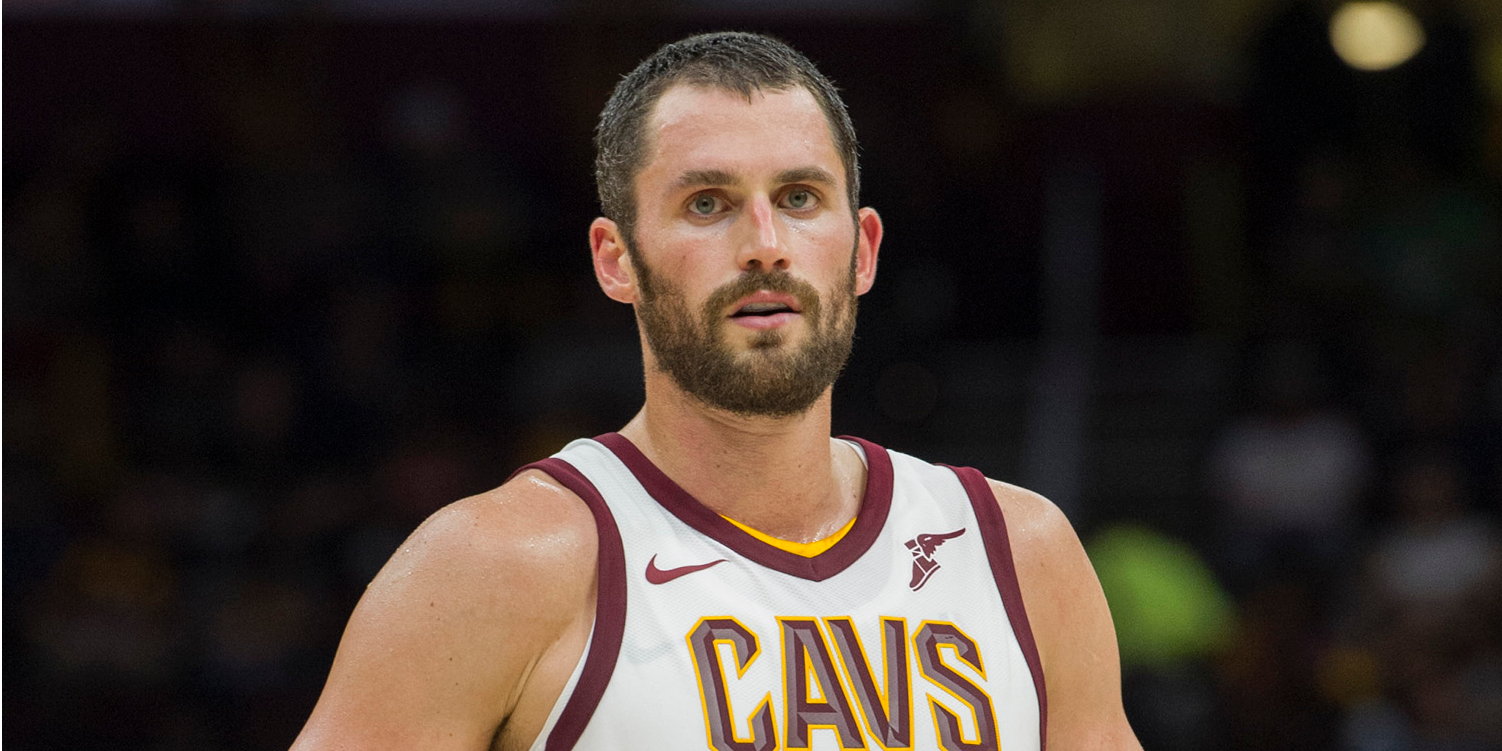- The Cleveland Cavaliers agreed to a four-year, $120 million extension with Kevin Love, bringing their commitment to him to five years, $145 million.
- The move suggests that the Cavs don’t intend to blow up their team and tank to keep their 2019 first-round draft pick, which is top-10 protected.
- Keeping Love may be a way to try to continue competing for the playoffs and remaining relevant after LeBron James’ departure.
The Cleveland Cavaliers don’t appear to be heading for a blow-up now that LeBron James has left.
According to ESPN’s Adrian Wojnarowski and Brian Windhorst, the Cavs agreed to a four-year, $120 million contract extension with Kevin Love on Tuesday. The deal makes for a five-year, $145 million commitment to Love, including this season.
The deal is worth $8 million less than Love’s max. He will make the max in 2019-20 and 2020-21, but his contract will stay flat in 2021-22 and will decrease in 2022-23, according to ESPN.
The deal comes as a stunner as the Cavs appear to be at a crossroads following James’ departure. Some wondered if the Cavs would try to trade Love to get back an asset for him and improve their lottery odds this season. The Cavs’ 2019 first-round pick goes to the Atlanta Hawks if it falls outside the top 10. It seemed logical for the Cavs to trade Love, lose games this year, keep their pick, and potentially start a rebuild around this year’s eighth pick, Collin Sexton, and next year’s pick.
Instead, the Cavs seem to be rebuilding around Love, with the intentions of remaining a possible playoff contender.
How Love reacts to being the No. 1 option should be fascinating. In Cleveland, Love was often reduced to acting as a spot-up shooter while James and Kyrie Irving handled the ball. His numbers took a blow as a result, due to the lower usage and fewer opportunities.
But with the Minnesota Timberwolves, Love was a No. 1 option, capable of putting up 25 and 12 a night. Of course, those Wolves teams weren't very good, and Love is approaching 30. But if he can comfortably slide back into being a go-to scorer, the Cavs might be good enough to stay competitive on most nights.
That could be the goal for the Cavs. When James left the team in 2010, they slid into the abyss, landing in the lottery all four years James was gone. They topped 30 wins just once, and while Kyrie Irving became a star intriguing enough to help lure James back to Cleveland, they struggled to draw free agents or much national attention.
With Love in the fold - and a core they likely will have to ride out - the Cavs might remain somewhat relevant. A potential playoff appearance, plus an All-Star in Love, would probably be financially beneficial for the Cavs and perhaps enough to make them a viable landing spot for free agents.
Love likely would not have fetched much on the trade market - ESPN's Zach Lowe reported in June that Love's trade value peak had already come and gone - and it's unclear if the Cavs could deal him now, post-extension. Trading for a player who will be making $25 million-plus beyond 30 is a risk, particularly for a player who has struggled with injuries the last two years and is only effective on one end of the court.
The Cavs haven't done much since James' exit, but their first major move doesn't suggest they have plans to blow it up and start all over.

